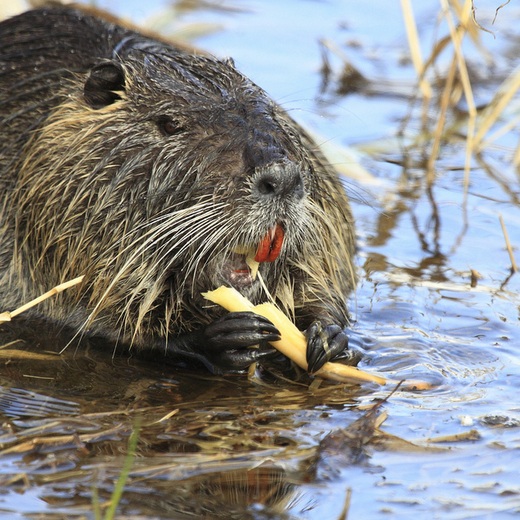A Tale of Fledgling Birds, Invasive Species and Climate Change
It’s a story familiar to pet owners.
About a week ago, I was watering our small raised garden when I noticed two baby mockingbirds hanging out in the tomato plants. There was a grown bird nearby, watching its offspring and chattering angrily at me. I didn’t think much of it until later, when I heard my wife scolding our dogs in the front yard. Eddie and Bobo, our fawn pugs, had found one of the baby birds and decided it was play time.
They played rough. A little too rough.
As I buried the fledgling, I got to thinking: is this happening in front yards all across the state? Even all across the country?
One bird expert says, pretty much, yes.
“There’s a critical time when these birds hatch, and there’s a period of anywhere from a week to three weeks, when they’re going to be learning to fly and to fledge, and that’s the danger zone,” Barry Lyon, who serves on the board of directors with the Travis County Audubon society, told me.

Mose Buchele
The Culprits: Household pets pose a great risk to wild birds. Cats are believed to kill billions of birds annually, sometimes dogs, like Eddie (left) and Bobo (right), cause harm as well.
It’s not marauding pugs that usually pose that danger. Much of the time it’s cats.
“Yeah, this is a very contentious issue. Extremely contentious,” Lyon said, choosing his words carefully. “People love their cats. People love cats as much as anything … [but] house cats are a non-native animal within the environment of the Western World.”
That means cats have few natural predators. Yet they are predators themselves, and birds are among their favorite meals. Some estimates say house cats kill nearly 4 billion birds each year in the US.
So what can you do if you find a bird in your yard and fear for its safety? Lyon says it’s a judgment call.
“A lot of people like to, you know, go ahead and pick it up and put it back in the branches,” Lyon said.
Like a lot of people, I had always thought that a mother bird would reject her nestling if it was touched by a human. Turns out that’s a myth, according to Jason Martin, a project leader at the Cornell Lab of Ornithology.
“Most birds actually have a poor senses of smell. So you will not be leaving your scent on a bird if you touch it,” Martin told me.
That doesn’t mean it’s usually a good idea to pick a bird up just to put it out of harms way. Martin and Lyon say that should only be an option when the bird appears too young to be away from its nest. Older, fledgling birds often leave their nests and spend a few days on the ground, still fed by their parents, before they learn to fly.
“And if you try and pick up the bird and put it back in the nest again, chances are it’s just going to jump out again,” Martin said.
Experts say there are other things you can do to help, including growing native plants that provide plenty of cover and, of course, keeping your cats inside when you know there are birds underfoot.
Why might someone try to give a small bird a helping hand? For one thing, the odds are against them. Mortality rates among some bird species before reaching adulthood reaches 70 percent or higher.
Then there’s the threat of global climate change.
Experts also say certain species of birds are gradually changing their native range because of warming trends.
“This is the kind of thing that can be gradual, barely perceptible, or it can be very perceptible,” Lyon said. “Some of the species are inching northward, like birds that occur in the southwestern United States.”
He said the White Winged Dove and Great Tailed Grackle are both examples of bird with ranges expanding to the North.
As for our yard, we’ve learned to keep Eddie and Bobo under close watch while the birds are still learning to fly.


